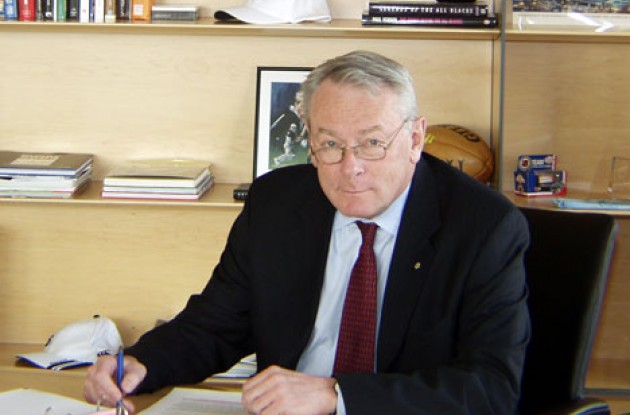Richard Pound Interview
Montreal ? Richard W. Pound, President of the World Anti-Doping Agency, is not impressed by the dissent issued by Christopher L. Campbell from the decision by an independent arbitration panel that found American Tyler Hamilton committed a doping violation by testing positive for a homologous blood transfusion (injecting someone else?s blood).
?His dissent mostly reads like a brief, not a judgement,? said Pound in an interview earlier this week in his Montreal law office.
The American Arbitration Association/North American Court of Arbitration for Sport rendered its decision on Hamilton April 18. As a result, Hamilton was banned from cycling for two years. He is appealing the ruling to the Court of Arbitration for Sport (CAS) in Switzerland.
Pound said he was ?not entirely surprised by the majority or the minority ? in the arbitration panel?s verdict, adding he has ?no doubts? about the science of the test method that found Hamilton had tested positive for a homologous blood transfusion at the Vuelta a Espana on September 11, 2004.
Hamilton also returned an A sample positive on August 25, 2004 after winning the Olympic time trial in Athens but was not penalized for that since his B sample was effectively destroyed by the Athens lab that did the testing, and no result could be determined from the sample.
Pound said his only regret was that Hamilton?s test in Athens was botched. He expressed the hope that the International Olympic Committee would take up the matter of Hamilton?s gold medal. The Russian Olympic Committee has filed and appeal to the CAS to strip Hamilton of his medal and give it to silver medallist in the event, Vyascheslav Ekimov.
If the Russian appeal succeeds, American Bobby Julich, who won the bronze medal in Athens, would be given the silver medal, and Australian Michael Rogers, who finished fourth, would get the bronze.
Pound also strongly defended Jacques Rogge, the president of the IOC, as an ?eminently fair? person. Rogge was criticized by Hamilton?s wife Haven at the AAA/NACAS hearing for statements he made in connection with the Hamilton case in late 2004. Campbell quoted Mrs. Hamilton?s testimony at some length in his dissent.
Pound, who represented Canada as a swimmer in the Rome Olympics in 1960, said doping by athletes is ?very seldom accidental?.?
?Someone may take a cold tablet or something [before an event] but this is an exception. In almost all cases, doping is deliberate, and nearly all of them require collusion with others ? doctors, team officials and so on.?
Asked whether doping could occur by mechanical methods -- for example, with the use of a hyperbaric chamber -- Pound said WADA is looking at such methods but he reserved judgement on them.
Visit WADA online at www.wada-ama.org.








